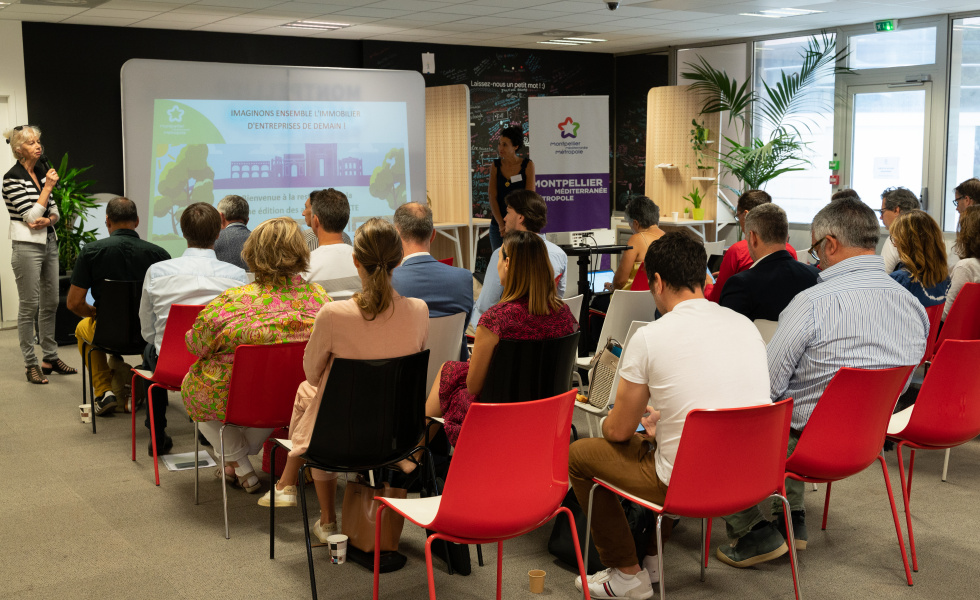How can we meet business needs in terms of real estate while also taking into account new societal expectations and environmental preservation? The answer is to place economic development, associative initiatives, real estate, and planning stakeholders at the heart of the process to build tomorrow’s offering.
That is exactly what
Montpellier Métropole is doing with
M’PACTE (Montpellier Territorial Economic Support and Consultation Plan). This coordinated collaboration-based approach, led by the Business Set-up Department, focuses on implementing inclusive, regenerative, and distributive economic development throughout the greater metropolitan area.
Three new co-creation workshops were held in May and June 2022, to understand the territory’s challenges and expectations.
The event was attended by more than 60 stakeholders, along with teams from Montpellier Métropole. Participants included
Agropolis International,
France Urbaine,
Agro Valo Méditerranée, Biophileus,
Mercadis,
Microphyt,
EDF Renouvelables,
Relais d'Entreprises,
Tertia Conseil CBRE, and
Tourny Meyer, as well as SERM, the
Occitanie Region and
Ad’Occ.
This third edition of the co-creation workshops covered the following topics: suburban coworking opportunities, the real estate offering dedicated to agri-food companies, and how to balance the
ZAN (Zero Net Artificialization of Soil) objective with economic growth. Insights from the workshops were presented on September 16, 2022, at the French Tech facility in Montpellier.
New societal expectations are emerging following the health crisis. Coworking in shared third spaces is becoming an increasingly popular alternative to home-based telecommuting.
“It allows us to avoid over-creating bedroom communities by creating a more balanced network of service-sector facilities that bring work closer to home,” notes Dominique Valentin, head of Relais d’Entreprises, highlighting the fact that commercial real estate and mobility issues are increasingly interconnected today.
With respect to the needs of agri-food companies, Laurent Fourcade, head of Food Processing and Environmental Management at Mercadis, the Montpellier Market of National Interest (MIN), highlights another critical issue –
food sovereignty – which requires establishing shorter distribution channels and developing a diversified supply of local, organic, quality products in the metropolitan area.
“However, to do these things, very small agribusinesses must be able to lease facilities adapted to their activity,” he says, recalling both the specificity of their respective needs according to their type of business, and the need for facilities to take the constraints related to water into account, which, depending on the case, may be an ingredient, process water, or wastewater.
Regaining control over food sovereignty is part of the fight against ground “artificialization,” with a ZAN objective for 2050 established by France’s Climate and Resilience Act of August 22, 2021, with an intermediate objective of cutting it in half by 2031.
“Concertation and territorial dialogue are in progress between regions and territories to translate the ZAN objective into a Regional Plan for Sustainable Development and Territorial Equality (SRADDET) and ensure that a balanced level of artificialization is applied, taking past consumption and each territory's potential into account,” explains Anne Subra de Bieusses, head of the Occitanie Region’s Economic Development and Requalification Department.
While acknowledging “the depth of the discussions” during the co-creation workshops, Maryse Faye, vice-mayor of Montpellier, in charge of sustainable urban planning and land management, also a Montpellier Métropole council member, concludes:
“Our responsibility is to find the right balance between companies’ needs, societal issues, and environmental preservation.”
This commitment is demonstrated by the new white paper created following the workshops.



